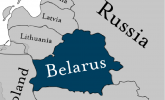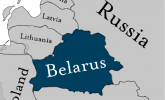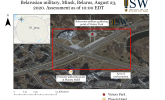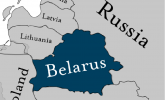Belarus Warning Update: Lukashenko Targets Opposition Leadership with Non-military Kremlin Support
August 25, 2020 - ISW Press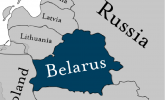
5:30 pm EDT: President Alexander Lukashenko effectively dispersed limited protests on August 25. Belarusian security forces dispersed protests across Belarus on August 25. Lukashenko resumed dispersing protests on August 24, but Belarusian security forces have not used violence against protesters since August 13. NEXTA’s call for Belarusians to gather at the Investigative Committee to support opposition leader Pavel Latushko only drew a small number of protesters. The Investigative committee released Latushko after interrogating him for 3.5 hours and forcing him to sign a non-disclosure agreement. An estimated 5,000 protesters gathered without interference on Independence Square in Minsk from 6:00 pm to approximately 9:00 pm local time. The Belarusian government organized a parallel pro-Lukashenko rally across the city in the Komarovsky market. Security personnel and several popular singers made speeches in favor of Lukashenko. Security forces detained small numbers of protesters in Minsk the evening of August 25 after protests ended. Security forces successfully deterred most protests and dispersed the remainder with little violence. Belarusian security forces likely seek to contain the scale of protests through intimidation and targeted detentions, rather than risking full-scale crackdowns.


